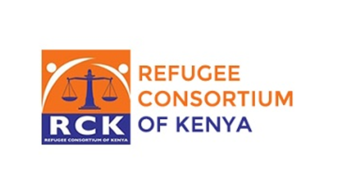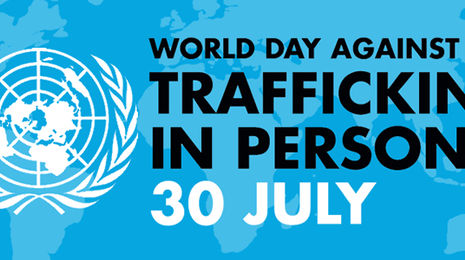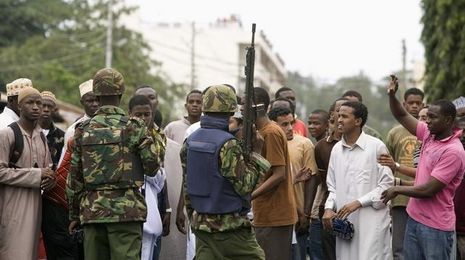Refugee Consortium of Kenya is a national NGO founded on creating and sustaining rights for forced migrants. Specifically, they are focused on three areas of aid; advocacy and policy development; legal and social justice, and communication; research and monitoring. Activist and legal professionals are working in all three of these branches to improve and promote the rights of refugees living in Kenya. RCK is joined by many partners from around the globe all collaborating to find applicable solutions for refugees. Some of these partners including the UNHCR, Austrailian Embassy, Danish Refugee Council and many others. The organization is commonly referred to by refugees as the Haki House or, Right House.
https://uploads.knightlab.com/storymapjs/c6336cbde8f40fcbbf97c1e6f78a5e2...
The overarching goal of RCK is to "Promote and protect rights and dignity of refugees, asylum seekers, and other forced migrants" by...
- Protecting the basic needs of forced migrants by collaborating with other organizations to provide necessary resources. The main organization RCK works alongside is UNHCR. UNHCR is largely in charge of running the refugee camps in Kenya, such as Dadaab and Kakuma. RCK main goal within refugee camps is to aid individuals who are seeking refugee status by sitting in with them as legal assistance on the Status Determination Process (SDP) interview.
- Supporting victims of trafficking in their struggle to regain freedom and establish new lives. RCK fights for individuals who are victims of sex trafficking or smuggling. These are children (under the age of 18) or adults who were kidnaped, transported, and now exploited for the benefit and gain of other. RCK’s goal is to represent these individuals because “stolen people are stolen dreams”.
- Helping Stateless person apply and gain citizenship by aiding them through the process and informing them on their rights. The main avenue RCK uses to support refugees is through litigation. RCK lawyers defend not only refugees, but also asylum seekers, and returnees. The lawyers represent them in many situations such as, application for “refugee” status or as an asylum seeker, protecting their rights once status is gained, and if needed representing them to the Refugee Appeals Board (RCK.org, Our Work)
RCK is fighting against powers who do not believe in equal rights for forced migrants. Mainly this includes right wing governments and local communities who are opposed to welcoming new members to the community, or do not believe there are resources to support them. For example, the Kenyan government security demonstrates their xenophobia, with respect to refugees, in their treatment of refugee camps. The government opines that the Dadaab refugee camp has lost its humanitarian character and thus must be shut down. However there has been little proof provided to support such a move (Maina, Interview). Another example of the Kenyan government working against the refugee community is in the Security Bill in 2014. After two attacks claimed by terrorist group Al-Shabaab, the Parliamentary Committee on National Security produced a bill with 21 laws which expand the powers of National Intelligence Services while infringing on refugee rights. Also, with the implementation of this Bill, Kenya would have a refugee-cap at 150,000 people and families could only reside in designated camps (Human Rights Watch).
The principle of burden sharing appears to be limited when providing funds for asylum hosting nations, as resettlement slots continuously dwindle. The provision of funds for refugees appears to be limited for humanitarian assistance and little thought has traditionally been put into prevention building (Maina, Interview). Other forces are increased conflict in the region has contributed to fresh displacement and protracted existing displacement situations, especially in eastern Kenya near the Somalian border. Another forced opposing Refugee Consortium of Kenya is climate change propelled displacement which is on the rise. However, because there are few legal regimes that recognize climate-change-induced-displacement, RCK work to influencing policy is increasingly difficult (VOA News).



